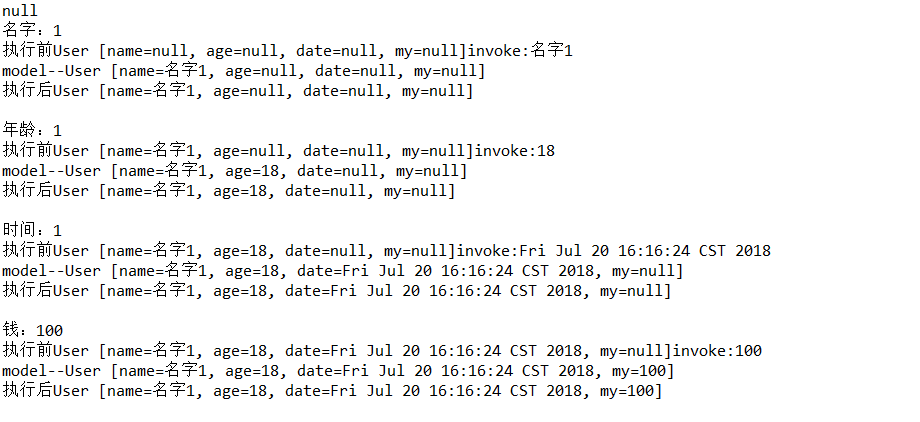

- #Java reflection getdeclaredmethods example driver#
- #Java reflection getdeclaredmethods example code#
- #Java reflection getdeclaredmethods example iso#
String Since main() is static, null is the first argument to
#Java reflection getdeclaredmethods example code#
production code should handle these exceptions more gracefullyįirst, to find the main() method the code searches for a class with the name "main" with a single parameter that is an array of String mainArgs = pyOfRange(args, 1, args.length) Method main = c.getDeclaredMethod("main", argTypes)
#Java reflection getdeclaredmethods example iso#
Out.format("Locale = %s, ISO Language Code = %s%n", l.getDisplayName(), l.getISO3Language())

getISO3Language() may throw a MissingResourceException Theĭeet example searches for public methods in a class which begin with the string " test", have a boolean return type, and a single Finding and Invoking a Method with a Specific DeclarationĬonsider a test suite which uses reflection to invoke private test methods in a given class. InvocationTargetException.getCause() method. The method's original exception may be retrieved using the exception chaining mechanism's Table of Contents hide Using PropertyDescriptor Using Class’s getDeclaredMethods Using PropertyDescriptor You can use PropertyDescriptor to call getters and setters using reflection. If the underlying method throws an exception, it will be wrapped by an There are two ways to invoke getter and setter using reflection in java. (If the method is static, the first argument should be null.) Subsequent arguments are the method's parameters. The first argument is the object instance on which this particular method is to be invoked.

Typically, this would only be necessary if it is not possible to cast an instance of the class to the desired type in non-reflective code. Lines 41-43: We create the object of the desired method by providing the name of the method and the parameter class as the arguments to the getDeclaredMethod() and invoke it at run time.Reflection provides a means for invoking methods on a class.

Lines 37-39: We get the method names by using the object of the class through the getmethods() method and print the names of the methods. invoke private method and field in java with reflection code example. Lines 34-35: We get the constructor by using the object of the class and print the name of the constructor. Use getDeclaredMethods(String name, Class. Lines 31-32: We create the class object by using the getClass() method and print its name using the getName() method. Line 29: We create the object of class 1 whose property we want to check. Lets discuss the basic example to demonstrate the use of these methods. if you declared it as an Object) - this might seem trivial, but such reflection is not possible in less dynamic languages such as C++. These are as follows: getConstructor, getConstructors, getDeclaredConstructor getMethod, getMethods. For example, all objects in Java have the method getClass (), which lets you determine the object's class even if you don't know it at compile time (e.g. getDeclaredMethods() // create an object of the Method class for (Method m.
#Java reflection getdeclaredmethods example driver#
Line 27: We invoke the main driver method. In Java, reflection is an API that is used to check and modify the behavior of. To these three useful methods the Reflection API adds some additional methods to class Class. In this tutorial, we will learn about Java reflection to inspect classes. The second constructor takes no arguments, the third accepts a string as an argument, and the last constructor is private. Lines 8-23: We make four constructors of the class, the first one is the public constructor. Line 5: We make a class where we want to create the object. getMethod (String, Class.), getConstructor (Class.), getDeclaredClasses (), getDeclaredConstructors (), getDeclaredMethod (String, Class.), and getDeclaredConstructor (Class.). Lines 1-3: We import the required classes. Java Class getDeclaredMethods() Method with Examples on java, class, asSubclass(), Cast(), desiredAssertionStatus(), forName(), getAnnotatedInterfaces(), getAnnotatedSuperclass(), getAnnotation(), getAnnotationsByType(), getAnnotatios(), getCanonicalName(), getClasses(), getClassLoader() etc. The following methods in were generified: getInterfaces (), getClasses ().


 0 kommentar(er)
0 kommentar(er)
